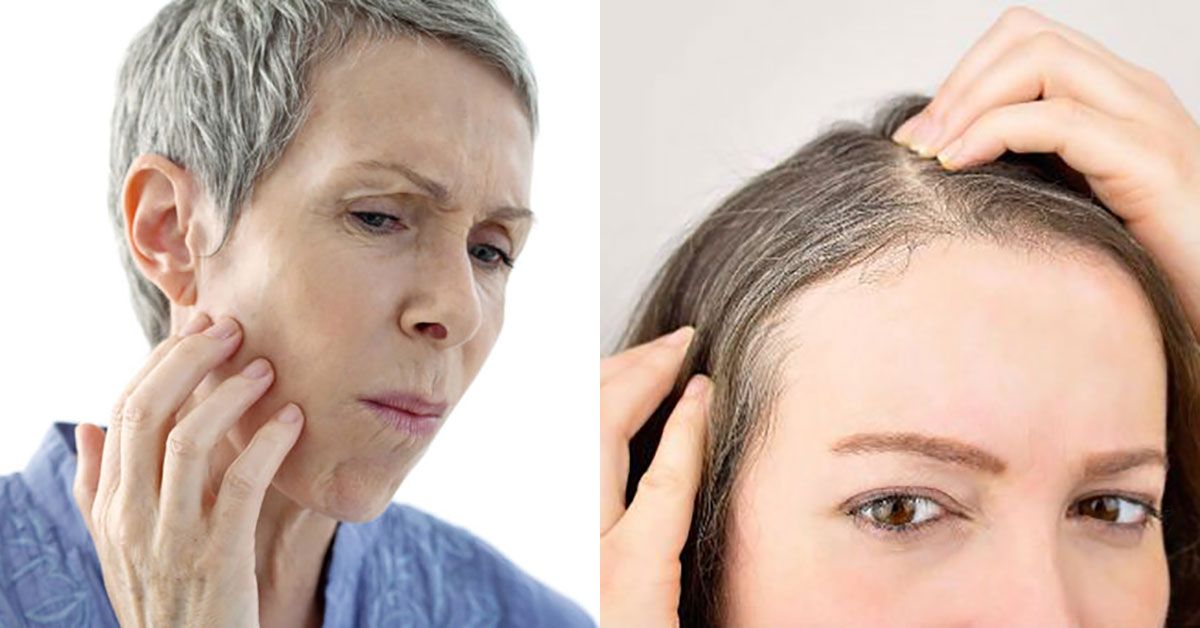Aging does strange things to a person's body.
We start to stoop, drag our feet, and have trouble moving like we used to. Even sleeping the wrong way can cause back pain.
But no matter how bad it sounds, these aches and pains are a perfectly normal part of getting older.
What you should really be concerned about are strange symptoms that could be signs of major health concerns.
Keep your eyes peeled for these 21 unusual conditions:
1. Jaw Pain
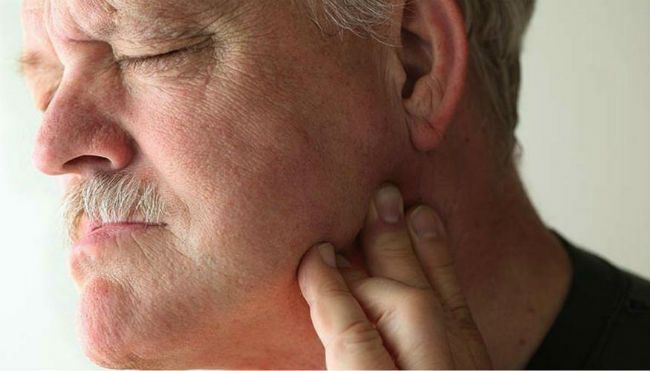
If you're still looking after your teeth like you used to, then something more serious could be causing your jaw pain.
Long-lasting chronic pain could be a sign of TMJ - or a jaw misalignment. TMJ is hard to treat, but it's better to know you have it then suffer without any clue.
On the other hand, sudden jaw pain or discomfort is a little-known sign of a heart attack.
Be sure to study all the signs of a heart attack or stroke, especially the ones that specifically affect women.
2. Bad Breath

Do you brush your pearly whites twice a day? Use mouthwash? And you still have a bad case of halitosis?
That could be cause for concern.
Diabetes patients often describe a sweet, fruity odor on their breath. This is a sign of ketoacidosis, or when your body is burning an unhealthy amount of body fat because of an insulin imbalance.
If you're also having trouble breathing, or experiencing confusion and abdominal pain, see a doctor immediately.
A rank ammonia smell, on the other hand, could be a symptom of kidney disease. Other conditions including asthma, lung cancer, and cystic fibrosis have their own distinct smells.
3. Thinning Hair
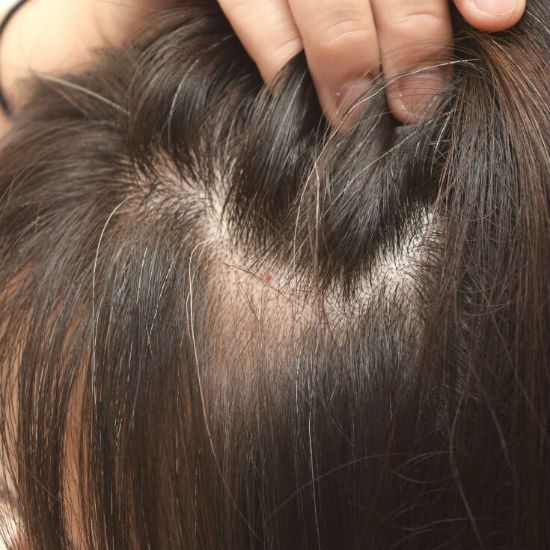
Male or female pattern baldness should always be the first suspected cause of thinning hair.
But don't rule out other common causes, including trouble with your thyroid.
The thyroid is a gland in your neck that produces hormones. When a variety of diseases affect it, your hair will become dry and brittle, the fall out.
If you notice your eyebrows are also thinning, or you're under 50 years old, you should see a doctor about thinning hair.
4. Hearing Loss

We like to think that our hearing just gets worse as we age. In fact, many conditions like diabetes can speed up the process.
Hearing loss is twice as common in patients who have diabetes.
The reason for the hearing loss could be damage to your ears caused by high glucose levels in your bloodstream.
Researchers guess that high blood pressure could have almost the same effect.
5. Chin Hair

As many as 20% of young women may have some form of polycistic ovary syndrome, or PCOS, depending on how it's defined.
The hormone disorder is known for causing painful, embarrassing, and uncomfortable symptoms, including acne and weight gain.
Hirsutism - or hair growth on the chin or chest - is one of the first PCOS symptoms many women notice.
The telltale sign of hair caused by PCOS is that it will be coarse and dark. If you notice stubble growing in, along with other symptoms, it could be time to see your doctor.
6. Colorful Urine
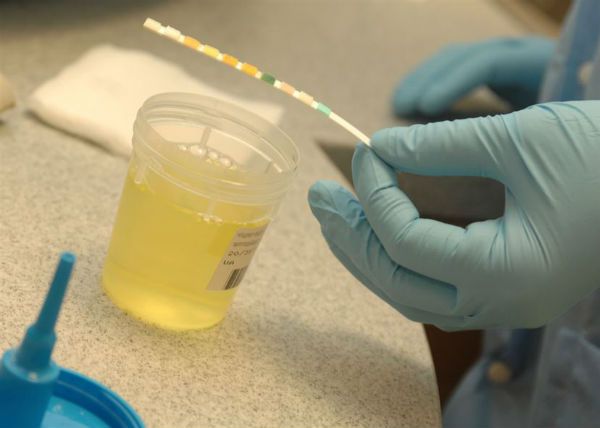
The ideal color for your urine is clear, or the color of lemonade. These are both signs that you're drinking enough water.
On the other hand, darker yellow urine is a classic sign of dehydration.
Keep an eye out for these other colors, which are symptoms of serious medical conditions:
- Diabetes patients often describe dark, cloudy urine, but it could also be a sign of a kidney or bladder stone.
- Pink urine is actually bloody urine. If you see it, you may have a UTI, or even cancer.
- Fizzy, cola-colored urine means that your body is breaking down muscle mass. Serious athletes, like marathon runners, sometimes experience it. But if you see it, get to the ER.
7. Thigh Pain
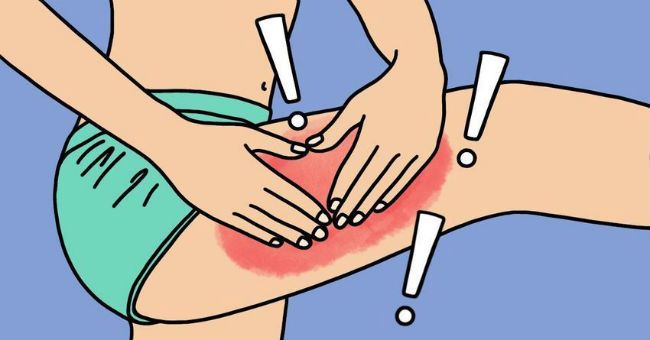
Leg pain is one of the most common complaints from older patients, but not all leg pain is simply a sign of aging.
Pay extra attention to thigh pain, because symptoms in this part of your leg could be serious.
If muscle pain does not go away with a few days of rest, icing, and elevation, see a doctor.
Chronic pain in your leg could also be a sign of bone cancer, especially if your leg is hot or swollen.
Keep track of your daily aches and pains, and visit a doctor about anything out of the usual.
8. Toenails That Aren't Growing
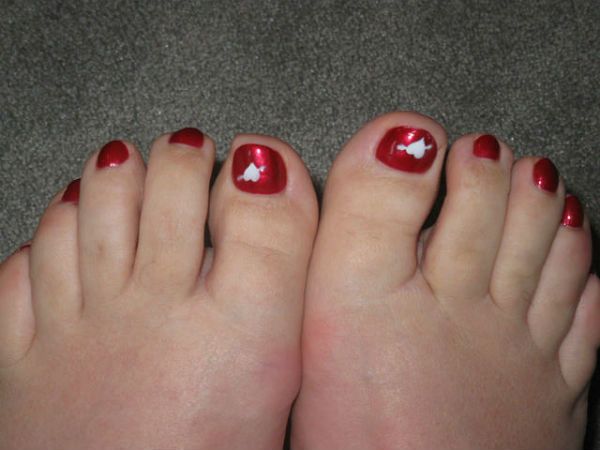
Yes, it may be convenient, but if the nails on your feet aren't growing, you should see a doctor.
Other signs to watch out for include cold feet with bluish skin, ulcers, and slower hair growth on your legs.
These are all symptoms of peripheral artery disease, or PAD. It's caused by narrowed arteries in your leg, and can increase your risk of stroke or heart attack.
The best prevention against PAD is a healthy lifestyle - lower your blood pressure, quit smoking, and get more exercise.
9. Bleeding Gums
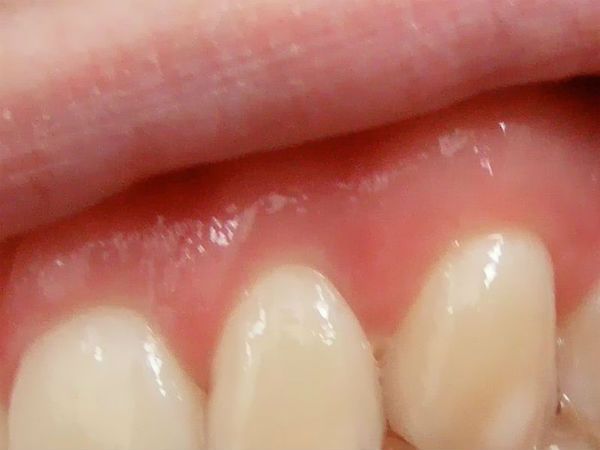
Here's one more symptom we associate with dental care that could be a sign of something much worse.
Yes, gingivitis, or gum disease, is the most common cause of bleeding gums. You'll notice it if you see pink in the sink when you brush your teeth.
But a number of cancers - including leukemia - can also cause bleeding gums.
Try to improve your dental habits, and if the bleeding doesn't stop go see a doctor.
10. Striped Hair
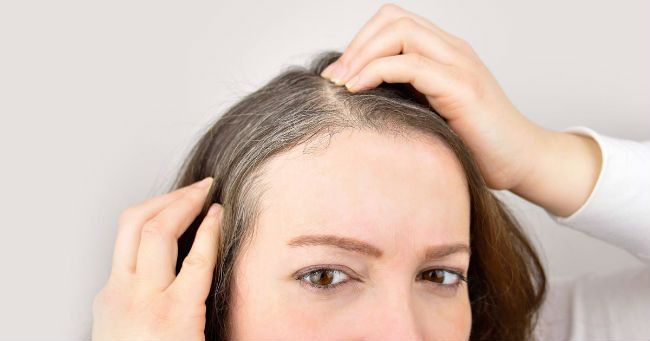
Paying for this funky style at the hair salon is one thing. If you start growing it naturally, see a doctor.
Striped or discolored hair is usually caused by an imbalance in your diet. You may be able to treat it with iron or protein supplements.
But chronic stomach conditions, including ulcers and colitis, will also cause hair striping.
11. Flu Without Flu

We all know the symptoms of the flu: fever, cough or sore throat, headaches and congestion, weakness and fatigue, and sometimes vomiting or diarrhea.
But if you're regularly experiencing these symptoms without the flu, you should be concerned.
There are a number of chronic conditions that cause muscle pain, fatigue and weakness, while your headaches could have their own triggers.
If the symptoms set in suddenly and get worse over time, check for a rash. You may have caught Lyme disease from a tick bite.
12. Heel Pain
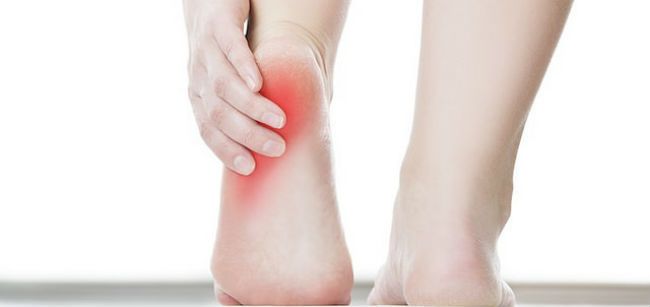
If you work on your feet all day, pain all over your feet is nothing new for you.
But if you're struck by consistent and specific heel pain, you should get it checked out.
By a quirk of our bodies, back injuries like pinched nerves, disc problems, and even degenerative bone diseases can be felt in your heels.
If resting your feet doesn't make the heel pain go away, get your back checked out.
13. Losing Your Sense Of Smell
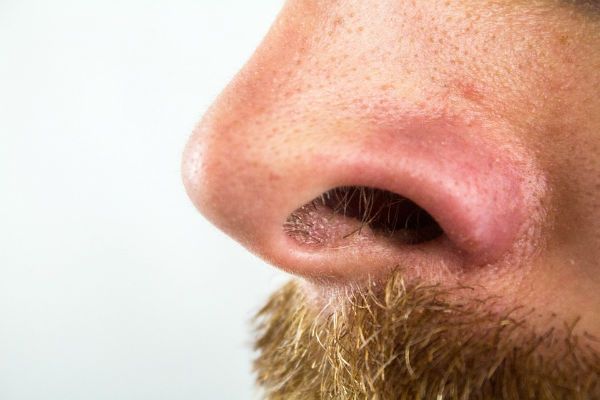
Like your other senses, in your 50s and 60s it's normal for your sense of smell to weaken.
But if you begin to lose it suddenly, or notice your sniffer is getting significantly worse, there's cause for concern.
Losing your sense of smell is one of the earliest markers for Alzheimer's disease. It seems the nerves in our nose are the first ones affected by the condition.
14. Wider Eye Veins

You can tell a lot from those little red lines at the edges of your eyes.
It turns out these veins are very similar to the blood vessels in your brain. So if they get out of shape, it could be a warning sign of dementia.
But it can be hard to spot with your own eyes, so schedule regular visits to an ophthalmologist.
In a similar way, blood spots in your eyes could be early warnings of diabetes or high blood pressure.
15. "Dirty-Looking" Skin
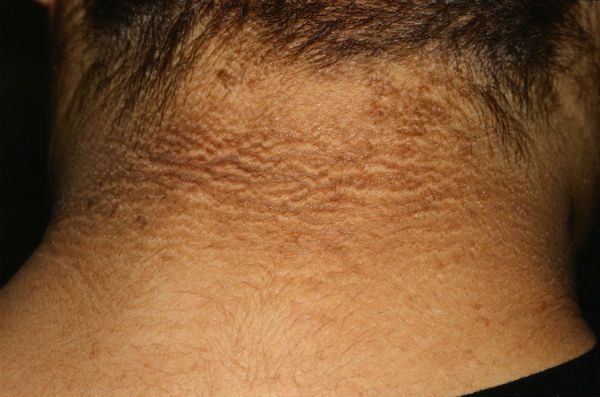
From time to time we all develop a strange or annoying rash that we can't explain.
If yours hangs around for a long time, forms mainly on your neck, and makes your skin look "dirty," it could be a sign of diabetes.
Called acanthosis nigricans, these patches of "velvety" skin normally form on your neck or armpits as a byproduct of insulin resistance.
Dark, smooth patches of skin could also be symptoms of hormone imbalances like PCOS.
16. A Strong Urge To Eat Ice
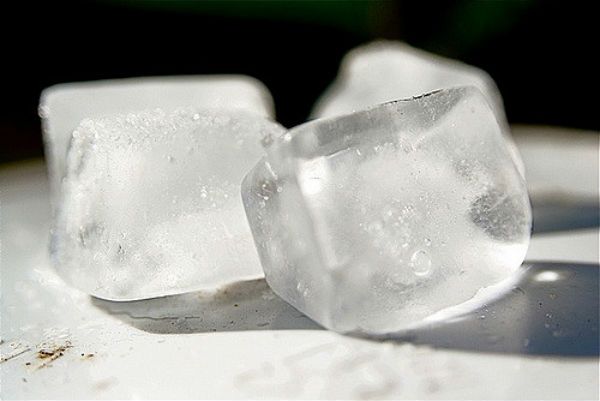
Some people actually enjoy snacking on ice water or "ice chips." But if you feel a strong compulsion to do it, you may have anemia.
Doctors call these urges to eat non-food substances pica, and along with ice, patients often list dirt or paper as their snack of choice.
Pica is also a symptom of many emotional and psychological conditions.
17. Colored Stool

Like urine, you can tell a lot about the state of your health from your poop.
The shape and consistency of your stool says volumes about your body, but so does its color.
Certain foods will change the color of your bowel movements, but dark black stool means there's blood mixed inside.
It could be a symptom of a stomach condition like ulcers, or in the worst case stomach cancer. (Bear in mind, Pepto Bismol also turns your stool black.)
Meanwhile, green stool is a sign of an infection inside your body - it's usually caused by either salmonella or giardia.
18. Frequent Peeing

If you're drinking enough water every day, it can sometimes feel like you're "going" constantly.
But heading to the bathroom multiple times an hour - or waking up several times a night to pee - is a real warning sign.
UTIs or diabetes can both cause frequent urination. If diabetes is the cause, you'll probably feel constantly thirsty as well.
If you only feel the need to go, but nothing comes out, you may have a kidney or bladder stone.
Finally, men should be extra wary about frequently waking up to pee at night. This is a common sign of trouble with your prostate.
19. Dry Mouth
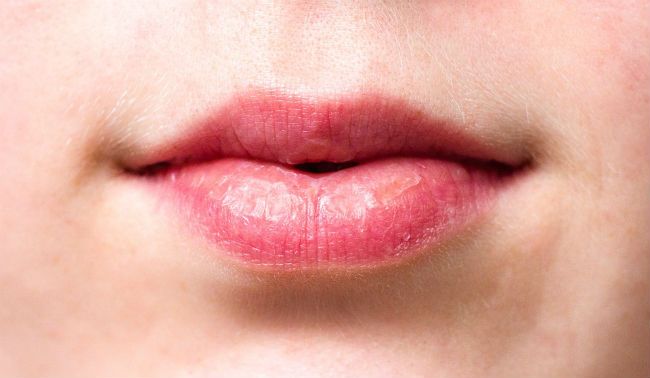
Don't panic right away if you have dry mouth, because there are plenty of innocent causes for this symptom. Medication, not drinking enough water, or tobacco use are the most common causes.
But if you're noticing other symptoms like mouth sores, split skin on your lips, or trouble swallowing, you should see a doctor.
One of the most worrying causes of dryness are autoimmune diseases, which leech your body's moisture.
You should only be concerned if you also experience dry eyes and skin.
20. Irregular Fingernails
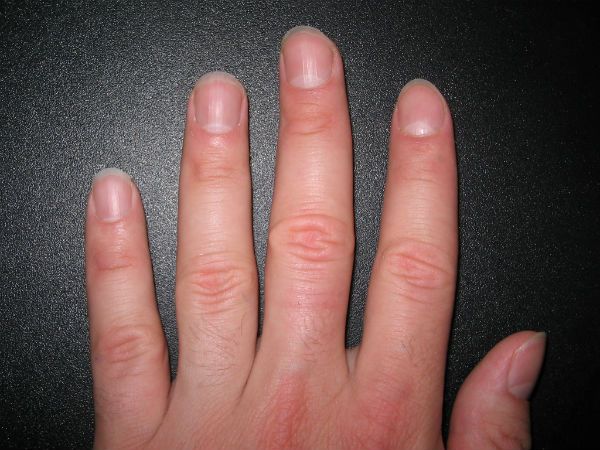
Who would have guessed you could tell so much about your body from your nails?
In fact, they're very handy little diagnostic tools:
- If your nails are growing in irregularly - with ridges and bumps - psoriasis or iron deficiency is usually the culprit.
- Changes to your nail color should also be taken seriously. Green or yellow are infections under your nail, while redness could be a sign of lupus.
- Finally, be on the lookout for a thin black line under the nail. These are splinter hemorrhages, and they're red flags for serious heart conditions.
- In other cases, these tiny, dark blood clots can be symptoms of melanoma, or skin cancer.
21. Creased Earlobes
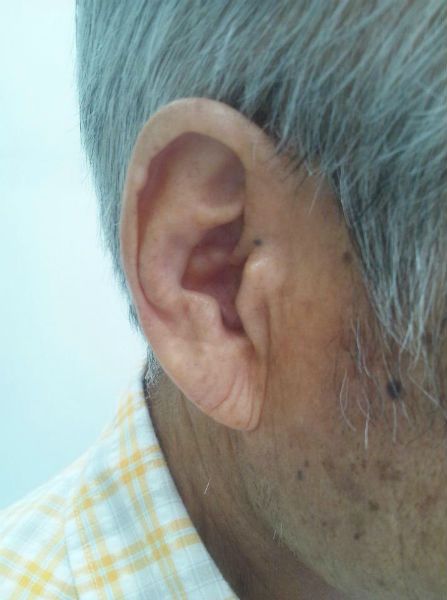
This may sound strange, but it's true.
A wrinkly earlobe is one of the most reliable signs that you're at risk for a heart attack or stroke.
Called "Frank's sign," this crease in your earlobe is caused by weak or damaged blood vessels in your ears.
If you notice it, schedule a check-up with your doctor to have your blood pressure and cholesterol noted.
Feeling stressed? Be sure to check the 11 overlooked symptoms that are actually caused by anxiety.
And look out for these 7 eye symptoms that could be signs of other health problems.
